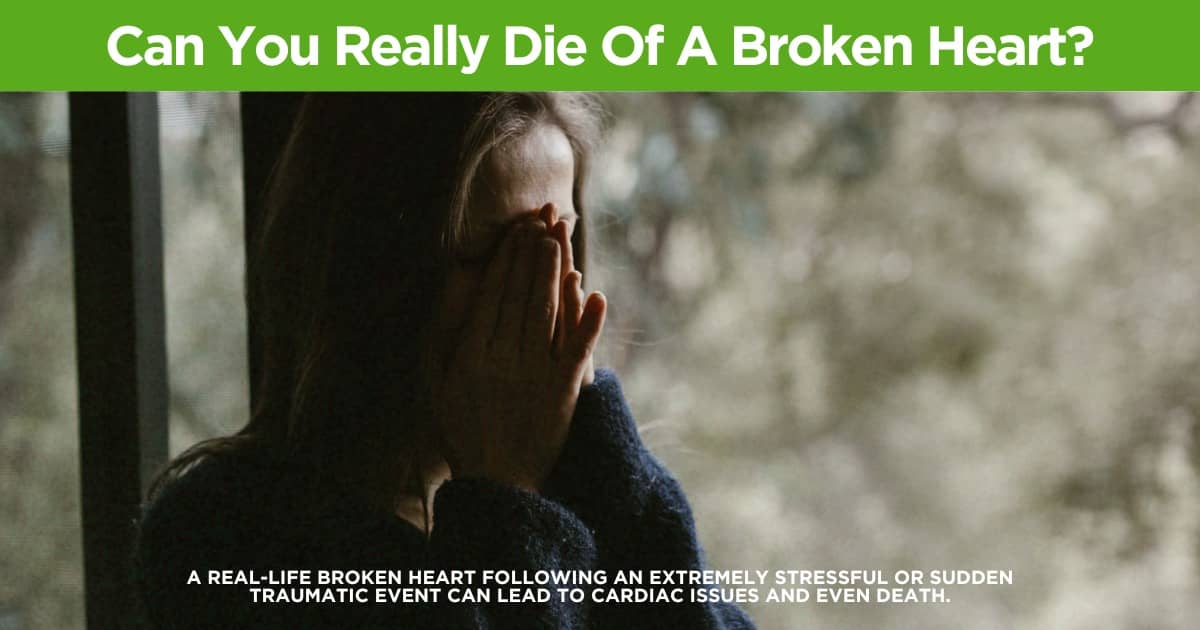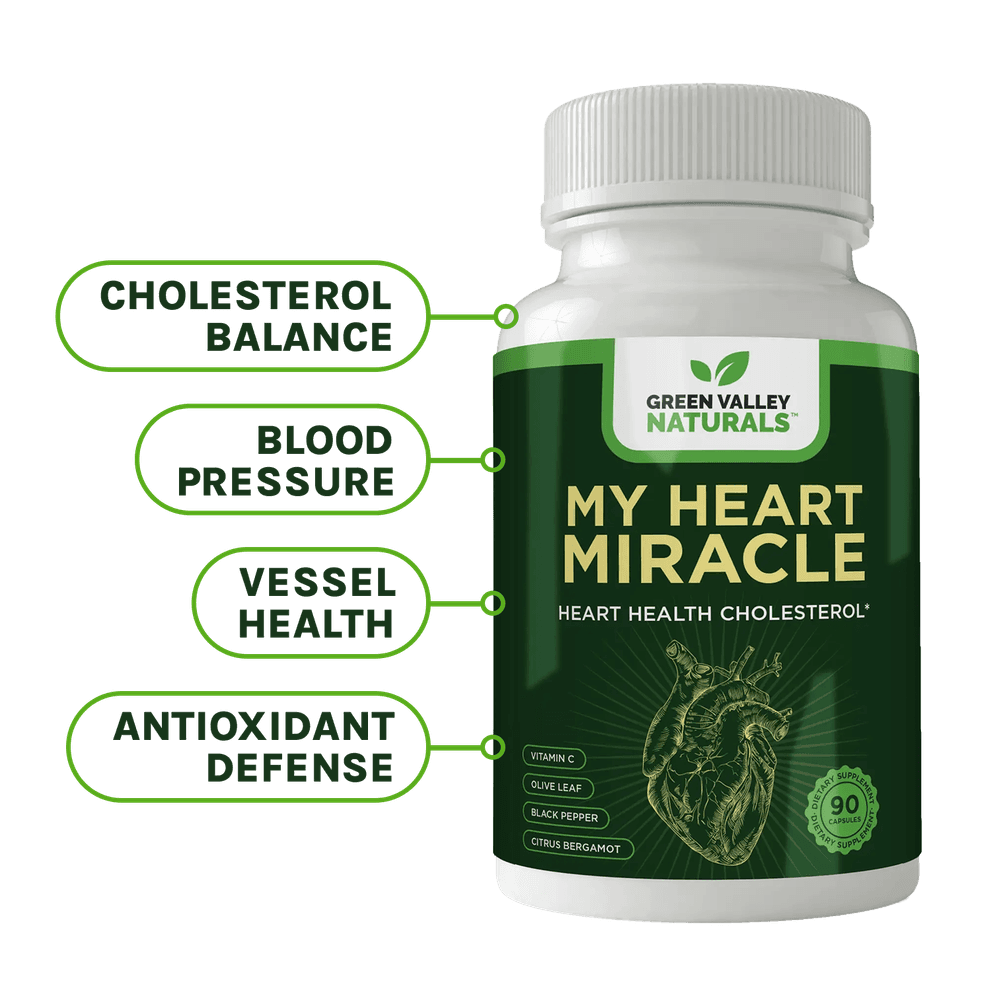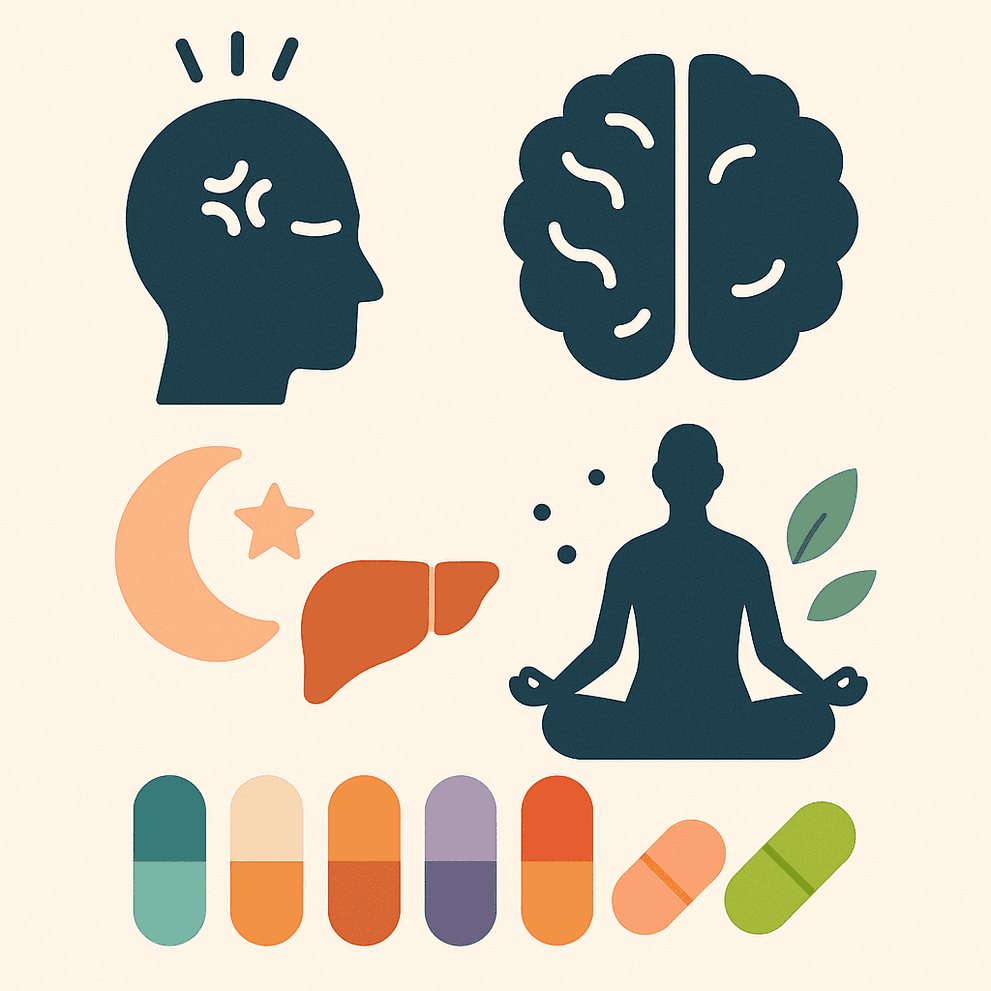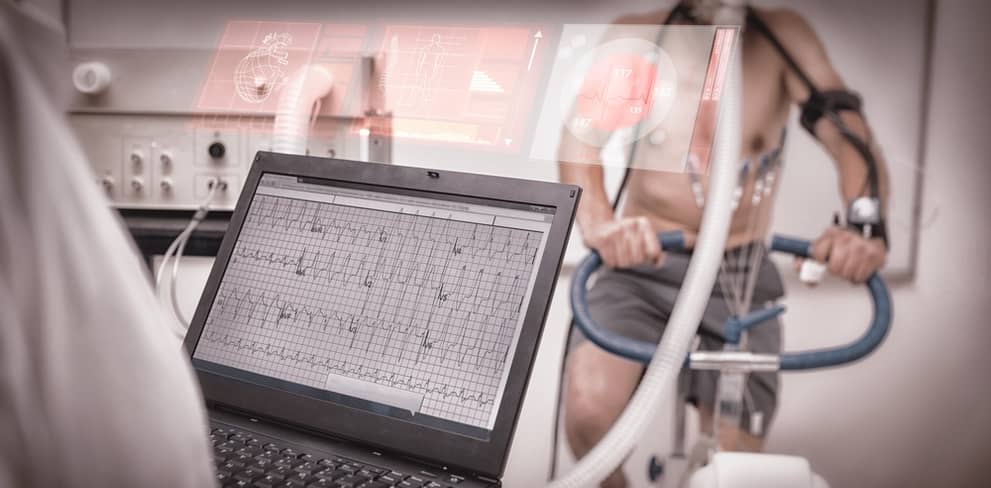
Is it the stuff of romantic songs or can you die from a broken heart?
The answer is yes.
According to the American Heart Association, a real-life broken heart following an extremely stressful or sudden traumatic event can lead to cardiac issues that cause death.
But, how common is so-called “broken heart syndrome?” Let’s take a look…
Broken heart syndrome, also called stress cardiomyopathy or takotsubo cardiomyopathy, is a real condition with symptoms that mimic a heart attack. Scientists suspect it’s a physical response to intense emotional distress that temporarily weakens the heart.
According to Harvard Medical School, takotsubo cardiomyopathy is a weakening of the left ventricle, the heart’s main pumping chamber. It’s typically the result of severe emotional or physical stress, such as the loss of a loved one, a serious accident, or a natural disaster. Of course, this is not an exhaustive list of stressors associated with broken heart syndrome.
"If you think about the heart as a pump that has to pump blood to the rest of the body, if the heart muscle suddenly weakens, it can create a situation where blood isn't getting to the vital organs, and a person can die," says Dr. Ilan Wittstein, of Johns Hopkins, who co-wrote a study on the syndrome in 2005.
You’ll be relieved to know that, although it can happen, The Cleveland Clinic reports that death from broken heart syndrome is an extremely rare event.
How Does Sudden Stress Impact the Heart?
Dr. Wittstein explains that when you experience a stressful event, your body produces hormones and proteins such as adrenaline and noradrenaline that are meant to help you cope with the stress.
But in this case, it may be too much of a good thing. The cardiologist says the heart muscle can be overwhelmed by a massive hit of adrenaline suddenly produced in the face of stress. In turn, this excess adrenaline can cause narrowing of the small arteries that supply the heart with blood. The result? A temporary decrease in blood flow to the heart.
The doctor goes on to say that this sudden adrenaline spike can prevent the heart from beating properly. Unlike a heart attack, when you experience broken heart syndrome, your heart muscle is not permanently damaged, and your coronary arteries are not blocked. Fortunately, these effects typically wear off within days or weeks, and most people do not die and make a full recovery.
Broken Heart Syndrome is on The Rise
Many of us have heard stories of, or perhaps had personal experience with, this condition among friends or family members who die soon after a spouse passes.
It’s no surprise to learn that after the millions of sudden and untimely deaths during the COVID pandemic, that rates of broken heart syndrome have increased. But cases of this syndrome were on the rise long before COVID.
One study, published in the October 2021 Journal of the American Heart Association, found an uptick in the rates of broken heart syndrome between the years 2006 and 2017. The study revealed that more than 135,460 Americans suffered from this syndrome during that period.
Women ages 50 to 74 experienced the highest increase in suffering from broken heart syndrome.
Why are Post-Menopausal Women at Highest Risk?
It’s not clear why post-menopausal women are at highest risk for broken heart syndrome. However, some experts believe that it has to do with the female hormone estrogen, which helps to protect the heart from the harmful effects of adrenaline.
Women may become particularly vulnerable to the effects of sudden stress as they grow older, and their estrogen levels decline.
Our Takeaway
There’s no silver bullet for avoiding sudden stressful events. However, I can say that taking steps to manage emotional stress can improve heart health and may prevent broken heart syndrome.
Consider strategies for unpacking your stress daily so you’re more able to deal with the unavoidable events that can surprise you. Stress-relievers, such as yoga, exercise, prayer, and meditation, are great to have as part of your healthy lifestyle.
If you’re contending with a sudden and traumatic emotional event, I encourage you to reach out to trusted friends and family. And don’t hesitate to seek therapy, grief counseling or support groups for whatever you’re going through.
With that said, if you or a loved one is experiencing sudden, severe chest pain or shortness of breath at any time, err on the side of caution and call 911.
My Heart Miracle
Comprehensive approach to supporting all aspects of cardio health--blood pressure, cholesterol, healthy blood vessels, and antioxidant protection.



